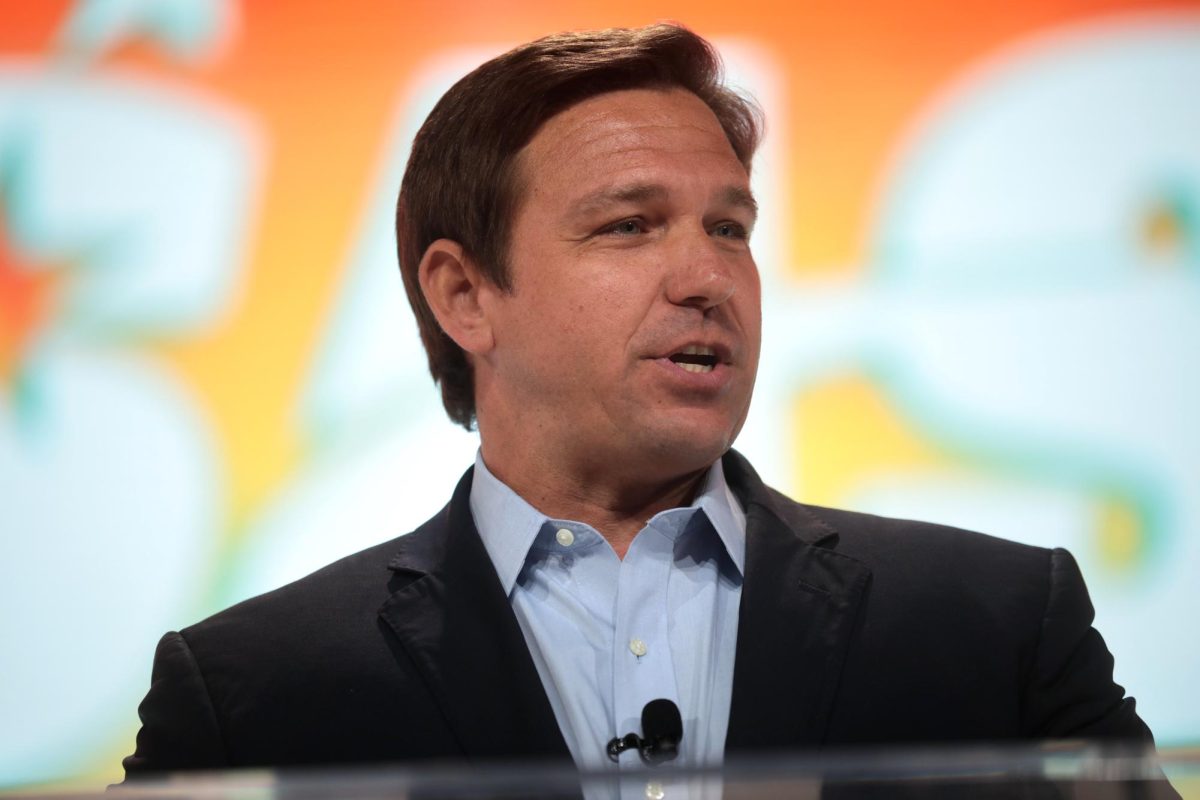
Matt Venezia is a sophomore biology major with a minor in writing.
In President-Elect Joe Biden’s tax plan, which will soon be implemented in Washington, he proposes a move to increase the corporate tax rate to a flat 28% and introduces some minor ways to hold big corporations accountable for the bare minimum. This position makes one question Biden’s commitment to protecting the American worker and pushing back on corporate power over American lives.
Corporations are able to write off a large array of costs in order to decrease what they pay in corporate taxes. They can write off anything from employee salaries to costs associated with properties intended as streams of revenue. For example, if a hypothetical corporation — we’ll call it McFast Food Corp. for fun — decided to purchase a company condo, McFast Food Corp. would be able to decrease their income taxes by the cost of their operations. McFast Food Corp. could also write off salaries, costs associated with running its business and even travel costs. Another real strategy for our fictional corporation is to abuse corporate tax loopholes — which are a complicated set of legal ways to get out of paying taxes that arise from miswording in legislation and legal technicalities. Finally McFast Food Corp. also has the ability to utilize what are known colloquially as “tax havens” (regions with low corporate tax, such as Luxembourg) where the company can hold its assets to avoid U.S. taxes.
With these strategies combined, McFast Food Corp. can minimize its corporate tax payments and maximize its profits, effectively making an increase in corporate taxes in America a moot point. All the while, it will still be paying its U.S. workers minimum wage (in some states, this can be as little as $7.25 per hour or less) and giving its executives, legal teams and CEO huge bonuses that probably total in the millions collectively.
Generally speaking, when we talk about corporate power in the real world, we think of Amazon, or the inspiration for the fictitious McFast Food Corp, McDonald’s.
Let’s take a look at McDonald’s track record with corporate taxes first. The company has repeatedly abused tax havens and avoided paying nearly $2 billion USD in corporate taxes over the period 2005 to 2015, when U.S. corporate taxes were higher than Biden is proposing. If McDonald’s could get away with this tax avoidance when the corporate tax rate was 35% in the United States, they will most certainly get away with it to a larger extent when they have less tax to pay.
Amazon, on the other hand, did not pay any corporate income taxes during 2017 or 2018. Amazingly, Amazon actually received over $250 million between those two years in tax refunds from the U.S. government. The corporation used all of the strategies I mentioned to alter its tax bills. Biden’s plan does not propose any major remedy for this situation either.
When corporations do end up having to pay a share of their taxes and/or when corporate taxes get raised, a substantial burden of that cost falls on the workers, those making minimum wage or slightly above it. Projections for Biden’s tax plan show that an estimated 25% of the tax burden will end up on the American worker, a problem he has yet to address.
For smaller corporations and small businesses that decide to incorporate, raising the corporate tax rates usually also means a decrease in profit margins. These smaller corporations are generally not able to take advantage of the same loopholes and tax havens that big corporations like McDonald’s are, and pay more of a price when corporate taxes are raised because of it. Biden’s plan gives incentives for small business owners, but still raises taxes on their businesses almost indiscriminately.
So what can Joe Biden and his administration do to limit the ability of big corporations to game the system while also protecting the American worker and smaller corporations? He is already implementing a plan that forces corporations making in excess of $100 million USD yearly to pay a minimum in taxes and a few other strategies that will get to work on holding big corporations accountable to a minor degree.
Moving into the hypothetical realm, Biden should attempt to close as many loopholes in the corporate tax plan as possible. Investigations into write-offs to limit their scope in certain cases could also be a viable strategy, though write-offs and loopholes will likely remain problems without easy solutions. These are still small solutions, ones that may get the wheels turning in the right direction, but are still limited in scope.
On a larger scale, Biden could also make the corporate tax progressive to a greater extent. After all, McDonald’s 20 billionth dollar in net profit is not the same as Groupon’s 2 millionth, and corporate income tax should reflect that. Under a more progressive plan, taxes would stay very low for small corporations, while big corporations’ profits reaching far into the billions would be taxed at a greater rate.
Most importantly, Biden can and must work with the American people to rethink the power that big corporations currently hold. Holding the largest corporations, like McDonald’s or Amazon, accountable while also not penalizing smaller corporations is key to breaking this cycle. Simply, this can be achieved by taxing multinational corporations based on where they make their profits, not where they hold their assets. If McDonald’s makes 30% of its profits in the U.S., 30% of its profit is taxed in the U.S. This solution alone would eliminate the power of tax havens and diminish the ability of big corporations to take advantage of the current system.
Unfortunately, though it does address small problems, Joe Biden’s tax plan clearly makes no major efforts to rethink the power of big corporations and makes minimal efforts to protect the American worker, taxpayer and small corporation.


















